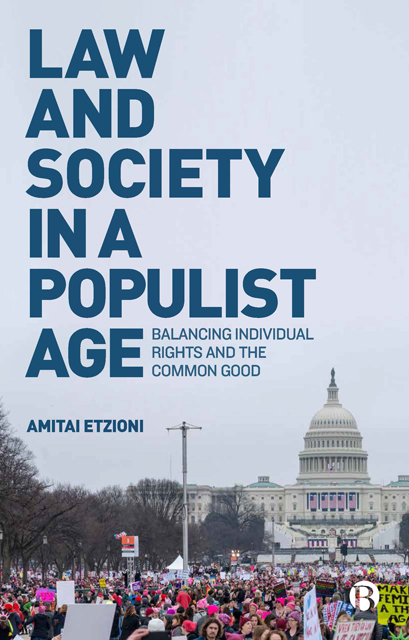seven - Privacy vs. security
Published online by Cambridge University Press: 21 April 2023
Summary
This chapter applies liberal communitarianism to explore the issues raised by the tensions between the right to privacy and national security, a perpetual issue that has gained more attention since the 2001 attacks on the U.S. homeland. To proceed, I draw on a liberal communitarian philosophy I helped to developthat assumes that nations face several fully legitimate normative and legal claims, and that these claims can be neither maximized nor fully reconciled, as there is an inevitable tension among them. It follows that some balance must be worked out among the conflicting claims rather than assuming that one will always trump the others. This chapter applies this approach to the balance between security and privacy.
In contrast to this balancing approach, contemporary liberals tend to emphasize individual rights and autonomy over societal formulations of the common good.And at the opposite end of the spectrum, authoritarian communitarians (mainly in East Asia) privilege the common good a priori and pay heed to rights mainly to the extent that they serve the rulers’ aims. Hence, when Gregory Ferenstein writes in the Daily Beast that communitarians grant priority to the common good over rights, he is both correct and mistaken.He is correct if he has in mind the likes of Bilahari Kauskian,but not when he attributes this position to those who have endorsed the responsive communitarian platform.
The Fourth Amendment text provides a strong expression of the liberal communitarian philosophy, which is particularly relevant to privacy. It states that “[t]he right of the people to be secure in their persons, houses, papers, and effects, against unreasonable searches and seizures, shall not be violated.”By banning only unreasonable searches and seizures, it recognizes, by extension, that there are reasonable ones, namely those that serve the common good or, to use a term more familiar to the legal community, the public interest. Liberal communitarianism is based upon the same fundamental premise. When it comes to the give and take over what qualifies as legitimate public policy, liberal communitarianism starts with the assumption that the public’s right to privacy must be balanced with concern for national security (and public health, among other common goods) rather than from the position that any breach of privacy contravenes an inviolable basic right.
- Type
- Chapter
- Information
- Law and Society in a Populist AgeBalancing Individual Rights and the Common Good, pp. 109 - 126Publisher: Bristol University PressPrint publication year: 2018



